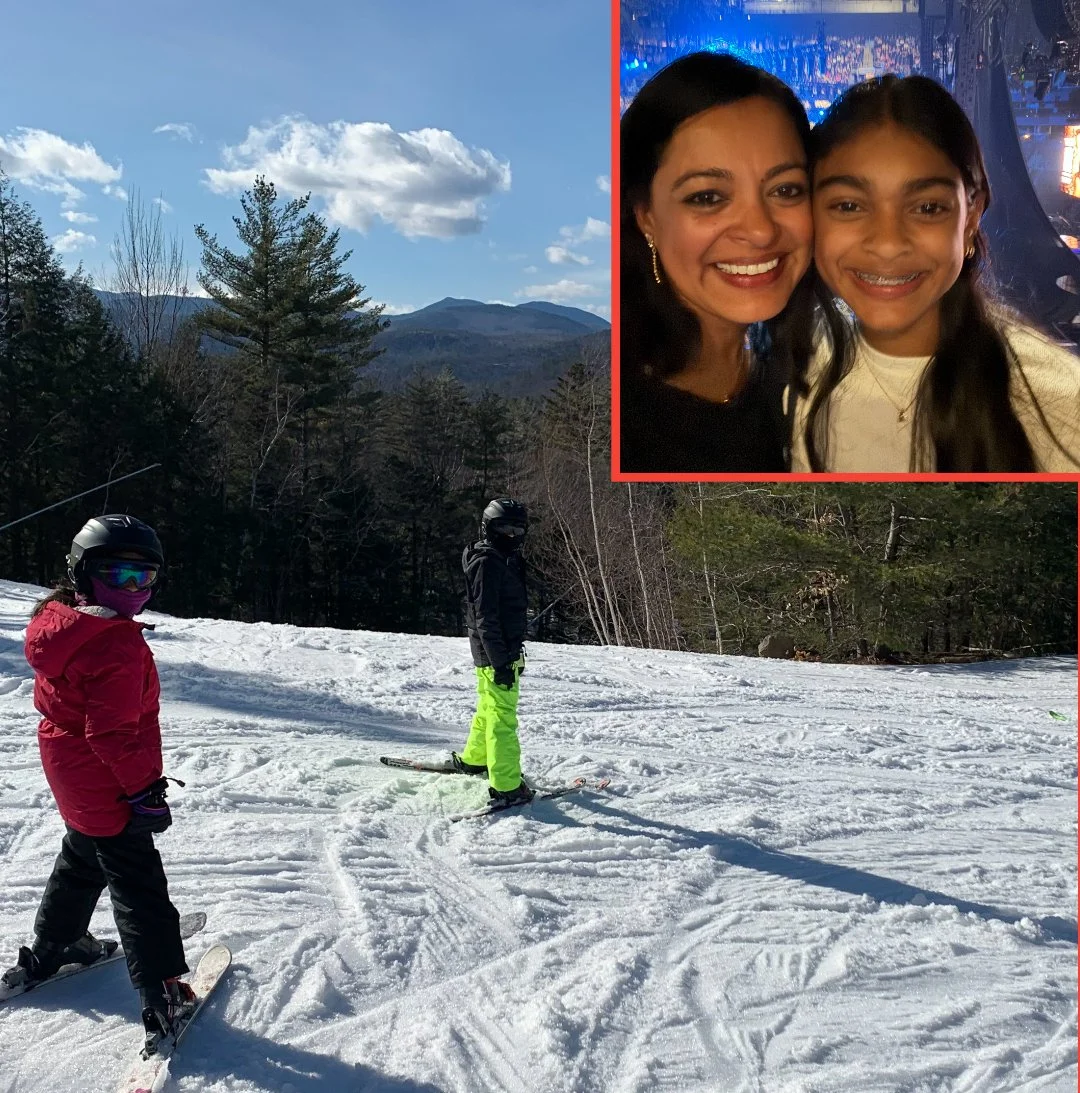My greatest teachers
I am an enthusiastic podcast listener. I love listening to a range of podcasts but usually focus more on politics and current events, life lessons and how best to live one’s life, and women, culture and careers. Every now and then, I hear nuggets of wisdom that I try to incorporate into my life. But as I was listening to a podcast recently, I heard supposed “lessons” that were pretty basic. I researched the experts and found out that they were just normal people like you and me spewing supposed “life lessons” to undiscerning listeners. While it was certainly a wakeup call to be be more discriminate about the content you are consuming, there was also a silver lining. That as of late for me, my greatest teachers are not ones I am listening to over a podcast or watching on Instagram reels but the very humans that I helped bring into the world; my greatest teachers are my children.
I know, it’s cliché in some respects (and I will write a post some day about the downsides of our self-help/self-improvement culture), but the point is that teachings are expert and age agnostic. And what we may need to learn in this moment may be right in front of our eyes and come from the most unlikely sources.
When Kabir first started out skiing years ago, he wasn’t getting it. Something wasn’t clicking for him. His fear of falling and not connecting with the instructor were all factors preventing him from learning the basics. Thus, he wasn’t progressing like his sister and our good family friends, all of whom were younger than him. While the other kids had advanced to their first green, Kabir was relegated to the “bump,” one notch below the bunny slope. As he stood there, watching his little sister and friends go up the chairlift, he felt humiliated. It didn’t make it easier that his little sister teased him for being on the bump. But instead of giving up and giving in to the humiliation, he doubled down. With unwavering commitment, drive and motivation to conquer skiing, Kabir not only made it up the chairlift onto a green by the end of the day, but he beat his sister down the mountain.
Kabir is the hardest worker I know. His work ethic is unparalleled to anything I have seen a young person doing in a while. When he sets his mind to something, he will work ad nauseum to make it happen. It’s relentless the way he will drill down on the task from studying for an AP exam to learning the ins and outs of his favorite sports. He gets obsessed with what his goals are and there is no distracting him from it. I joke with my friends that he has no time for girlfriends or anything really because he is so “locked in.” In theory, we know that hard work, dedication and commitment yields results. For example, we know that the #1 reason that diets fail is because people lack discipline and consistency. Our minds know all of this. But its one thing to know something mentally and another to actually DO what you know. Kabir is teaching me daily how it is done. In real time and in real life, he leads by example and is one of my greatest teachers.
My other great teacher is my daughter, Navya. Earlier this week, Navya and I went to see Dua Lipa at TD Garden with a few of her good friends. In the lead up to the concert, the moms discussed having the girls wear sequins skirts. As any obliging mother, I ordered a few on Amazon (and paid for two-day shipping since I cancelled my Prime membership- a story for another time). From the moment my daughter came home from school, she was looking out the front door in anticipation of the package’s arrival. Thankfully, it arrived in time and my daughter bounded up to her room to try them on. The skirts were all quite short. My daughter paired one of the gold sequins skirts with a black top, put black shorts underneath, all the while looking quite unsettled and unsure. I looked on from the door of her room with a bit of skepticism, however, I stayed silent. I’ve learned the hard way that it’s best to keep quiet over issues like dress and hair with a 12-year old girl. I left the house to grab food so we could head out to the concert.
When I came home, Navya announced boldly and unequivocally that she wasn’t going to wear the gold sequins skirt. She said she just didn’t feel comfortable. Mind blown! I don’t know many 12-year old girls, including myself when I was that age, who could put their feelings and comfort ahead of those of their peers. Navya knew her friends would all be matching in their sparkly sequins but she still chose to wear what felt best for her and her body. Not only was this a proud mom moment, it was such a lesson in being confident in who you are and owning that feeling. She showed me that she does not need external validation to feel good about herself and that what is most important is to listen to your gut and go with what makes you feel the best. It has taken me four decades to learn that lesson and to be honest, it is still hard for me. As we left for the concert, Navya not only looked beautiful in her still too-short blue skirt, but so confident and sure of herself. You go girl!
My children are not perfect nor do I want them to be. They make plenty of mistakes and are still learning the ropes of how to live their lives. But they are my greatest teachers as well as my greatest gifts. Now, only their mother can say that :)
Who are your greatest teachers?


















